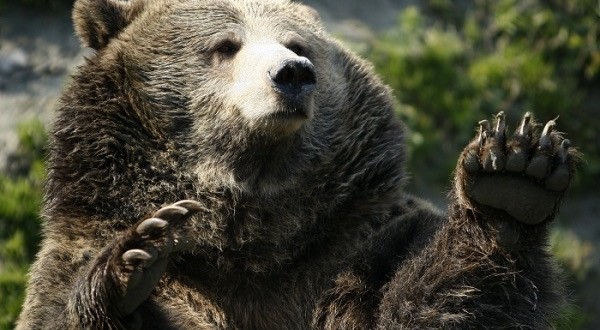It seems like attacks on humans from large carnivores such as bears, cougars and coyotes are on the rise.
That’s according to a new University of Calgary study citing risky behaviour on the part of the human while out in the wild.
Large carnivores involved in 700 attacks on humans since 1950s.
Thousands of interactions occur between people and large carnivores with no human injuries or fatalities. However, numbers have shown that since the 1950s, brown bears, black bears, polar bears, cougars, wolves and coyotes have been involved in 700 attacks on humans in North America and Europe.
In North America, coyotes were responsible for nearly 31 per cent of recorded attacks, and cougars were responsible for 25 per cent of incidents involving large carnivores and humans.
University of Calgary professor Stephen Herrero is a leading authority on bear attacks and safety. His research on bears and other large carnivores spans nearly 50 years, with nearly 28 of those spent teaching at the university.
While Herrero’s research on bear attacks has been highly influential and has helped develop new policies in bear safety and bear conservation, it is this latest research that Herrero sees as having a significant impact on how we interact with large carnivores in their natural habitat.
Learning how to behave in carnivore habitats can help us avoid encounters
“From an early age, most of us learn social norms, rules and how to decrease risks in urban environmental settings, but much less effort is expended to teach us how to behave appropriately in areas inhabited by large carnivores,” says Herrero.
The number of people engaging in outdoor leisure activities in areas inhabited by large carnivores has increased over the past few decades, which ultimately increases the probability of an encounter with a large carnivore.
Understanding the circumstances associated with large carnivore attacks is something that Herrero sees as useful to reduce the occurrences. He explains that it is in our hands to change the observed trends.
“The cases of children injured or killed while left unattended by their parents, attacks on people jogging or walking alone at twilight and during hunting, should make us reflect on our responsibilities,” says Herrero.
After decades of low interaction between humans and large carnivores in many regions of developed countries, many people involved in outdoor activities may lack knowledge about how to avoid aggressive encounters with large carnivores and what to do when such encounters occur.
Education should focus on general public enjoying outdoor activities
“Caring people, when presented with such information, can shape their behaviour to decrease chances of large carnivore attacks,” says Herrero. “This also would contribute to carnivore conservation as people learn how to live safely in closer proximity to large carnivores.”
Even with the number of attacks increasing over time, attacks of this nature remain extremely rare although they are often overplayed which causes increased fear and negative attitudes towards coexisting with and conserving many large carnivorous species.
“Educational and interpretive efforts aimed at decreasing the risk of large carnivore attacks should not focus exclusively on people living in rural areas, but on the general public,” says Herrero. “Indeed, many people living in cities should be properly informed because of the increasing number of them enjoying outdoor activities and the expanding population of carnivores in suburban areas.”
Agencies/Canadajournal

 Canada Journal – News of the World Articles and videos to bring you the biggest Canadian news stories from across the country every day
Canada Journal – News of the World Articles and videos to bring you the biggest Canadian news stories from across the country every day

